Every contestant is a star - The gleaner honour awards, 2009
Published: Tuesday | October 27, 2009
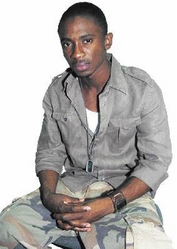
Christopher Martin
Boris Gardiner's subtle reassurance or Big Youth's ultra-cool braggadocio on their respective versions of Every Nigger is a Star may or may not sit well in a world where, for some, the 'n' word has mutated from ultimate racial put-down to an expression of macho camaraderie. And the overwhelming majority of the thousands of Jamaicans who have a number assigned to their entertainment dreams and face the Digicel Rising Stars judges - both the assessing trio and voting public - were born long after those records were made.
Still, whether they make it to the television stage of the contest for vocalists, the sixth season closing in early September with Montego Bay's Brown Sugar taking the top spot, or fall by the wayside at an audition somewhere around the island, one thing appears certain.
Ever Digicel Rising Stars contestant is a star.
The show's producer, Sharon Schroeter, has seen the contestants (she calls them her kids) in their hopeful, rising, risen and deflated stages from the beginning, after doing an audition herself at TVJ for a sole judge of production talent, then Digicel Rising Stars' producer Mark Kenny in 2004, and signing on as his assistant.
Female winners
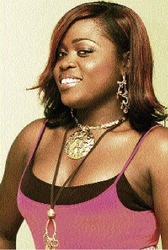
Cameal Davis
She moved to producer in 2006, leading a "wonderful" all-female team.
The contest has had back-to-back female winners, Cameal Davis taking the title in 2008. Cavan was the 2004 winner, followed by Christopher Martin in 2005, One Third (the only group to win so far) and Romain Virgo. Her Rising Stars debut was at an audition in Island Village, Ocho Rios, St Ann.
"The first day I was a little nervous and they had some people there from Ireland who came to watch us. At the end of the day they took the tapes and went into a little room and I was like 'Oh my God'. It was a little scary, but at the end of the day they came out and said 'you did really great, we can leave now'. I think they left the next day. They didn't come back," Schroeter said.
There is someone who has kept returning, auditioning at every location around the island since Digicel Rising Stars began. Currently going by the moniker 'The Chosen One' he has had a couple name changes since entering in his late teens to early 20s, but still hasn't been found the choice of the bunch, making top 10 from a location once but never making it to the television stage. The star-quality dresser (furs and leather) even took on a chosen one himself, entering with a female partner. Schroeter describes his style as a "kind of deejay" and says he has a "husky, smoky" voice.
After whatever stage of the Digicel Rising Stars journey an attempt ends, The Chosen One simply says "thank you".
Shot at the big times
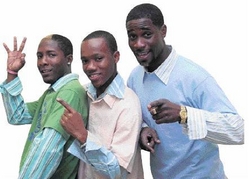
One third
The gratitude of any Digicel Rising Stars entrant may be not only for a chance at self-expression, but also a shot at the big times simply by being able to enter. "A lot of people are dedicated Rising Stars fans and you never know who is watching," Schroeter said. "So someone may watch it and see him and say wow, we've been looking for someone with that sort of talent. Someone who is different, someone who is unique."
The same thing goes for those who make it to the studio finals, as music industry movers and shakers watch it for 'the next big thing'.
She has been to the roots of all the potential 'next big things' in Digicel Rising Stars, doing the 'postcard' from their homes. Christopher Martin "climbed a guinep tree for me and picked guinep for me". She has been to the middle of nowhere in St Catherine, toted equipment to the top of a hill in Portland and into a farm ground in St Elizabeth. "Noddy was just 'this is me, I not changing for anybody, I'm a farmer, this is what I do'. And it was fun. His own was the best. I remember the cameraman saying "this one going tough, this one going tough. It was so real."
The postcards also make the often far-flung communities real in terms of giving them a national presence. "We make sure to include everybody," Schroeter says. "Nobody heard of Back Pasture (Christopher Martin's community) before we went there. You kind of put somewhere else in Jamaica on the map. You expose Jamaica to somewhere different, somewhere they have never heard of, somewhere they have never been."
The studio finalists are groomed physically as well as their skills honed by tutors including Michael Sean Harris (voice), Patsy Ricketts and Michael Holgate (movement). In addition, the top contestants each year are given recording opportunities with top studios as part of their prize package. Schroeter notes that 2008 winner Cameal Davis recorded with producers Handel Tucker, Shane Brown and Clive Hunt. Last year, for the first time they worked with hot younger producers DASECA and Equinoxx.
Still, Digicel Rising Stars has had its low moments, Schroeter naming the Emancipation Park chaos when overzealous fans ran amok at the height of the Christopher Martin/Noddy Virtue fever in 2006 as the contest's nadir. At the end of it all, after literally hurling the two into a bus to remove them from the venue, "I was still sitting down on the sidewalk, because I couldn't believe what had happened that night".
Her best moment was in the first season when Cavan came back into the competition. He had been voted off, which had been hard for Schroeter because she loved his talent. "He is a wicked songwriter and I loved his voice," she said. Then a contestant migrated and when Shroeter told the judges they needed to bring back in someone "all of them said Cavan". Then there was her first producer's pick, Oneil Peart, as well as Khalil making huge strides in their second shot, taking the runner-up spot in 2008 after not making it to studio finals the previous year.
Expanded horizons
The competition has also expanded the horizons of the viewing public, even as the horde of entrants each year is narrowed down to a single winner. "It got them to open up their eyes to young talent," Schroeter said. "It has showed them there is something else out there other than the norm, what you see on a regular basis. It shows that music, dancehall, reggae any kind can be clean. It shows how performance techniques are important."

Schroeter
From the production perspective, Schroeter says Digicel Rising Stars had its best year in the recently concluded 2009 season. "This year we had no major hitches. If any problem came up it wasn't one that we could not solve. It was just very smooth," she said. "There were more audition venues this year and Schroeter said "we have mastered the auditions". It was also the year, she believes, had the deepest talent pool, saying: "I believe we had an incredible top 10."
That included an all-female top three.
Digicel Rising Stars does not have a specified number of seasons to run. "There is no set period," Schroeter says. "We just go. Once Digicel gives us the OK then we go. They make the call."
She knows, though, where she wants to see the contest go. "I would love to see it around so that my kids can enter. I would love to see that, just to see the competition evolve. I would not want to see it remain where it is now. Each year you add changes, add different elements to it."
"You never know the kind of talent you have out there. I think Digicel Rising Stars is a good avenue to just expose all different kinds of talent. I'd love to see it around for a long time."
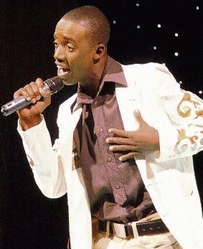
Romain Virgo
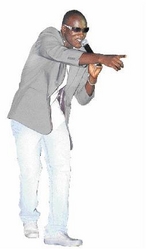
Cavan
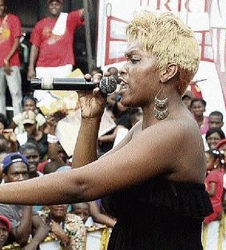
Brown Sugar
